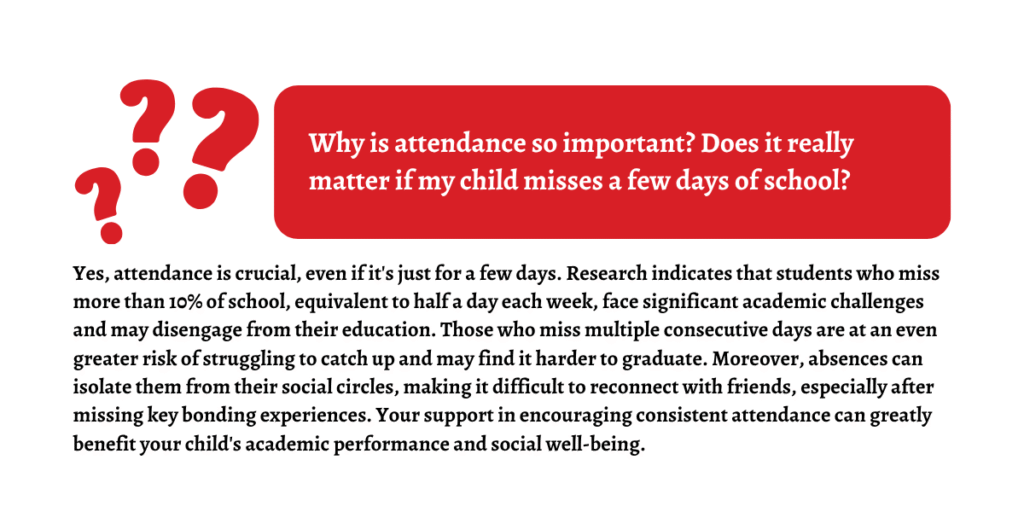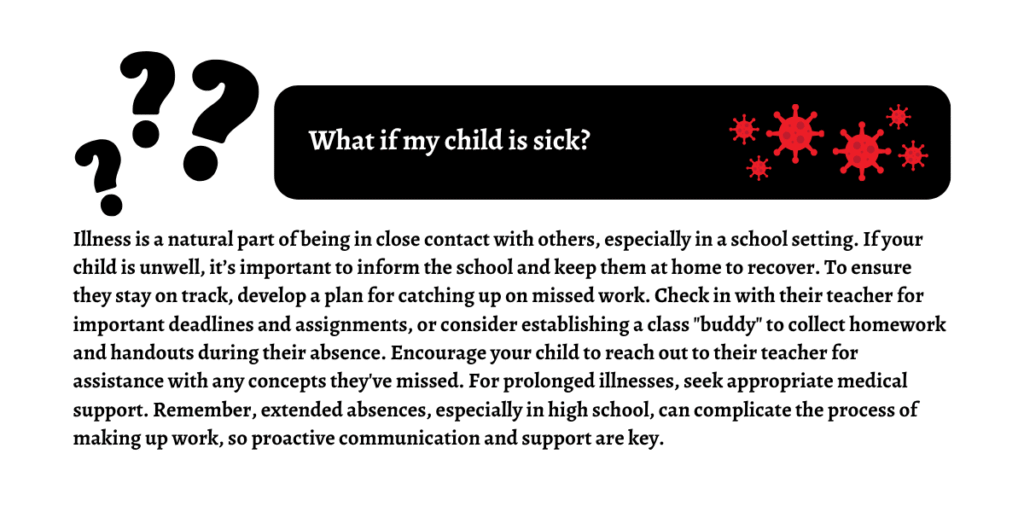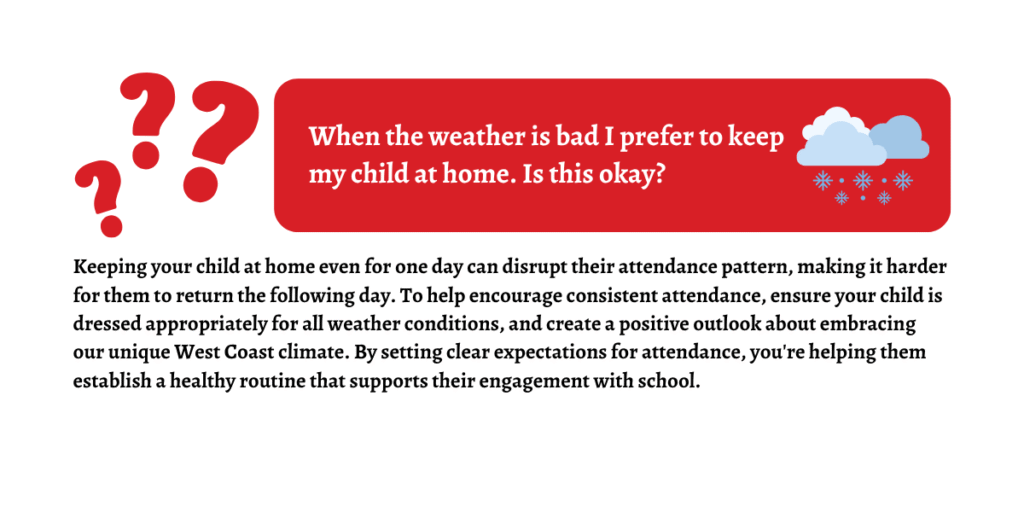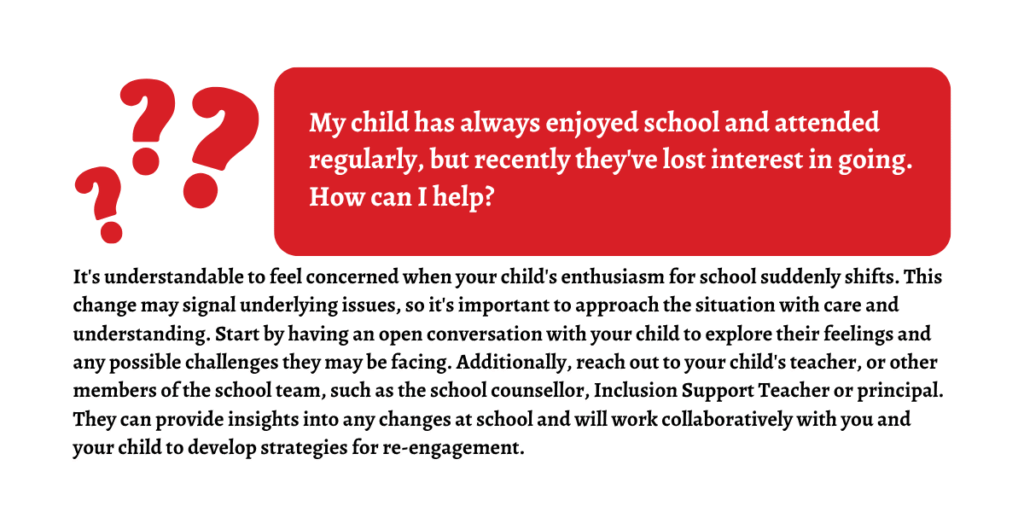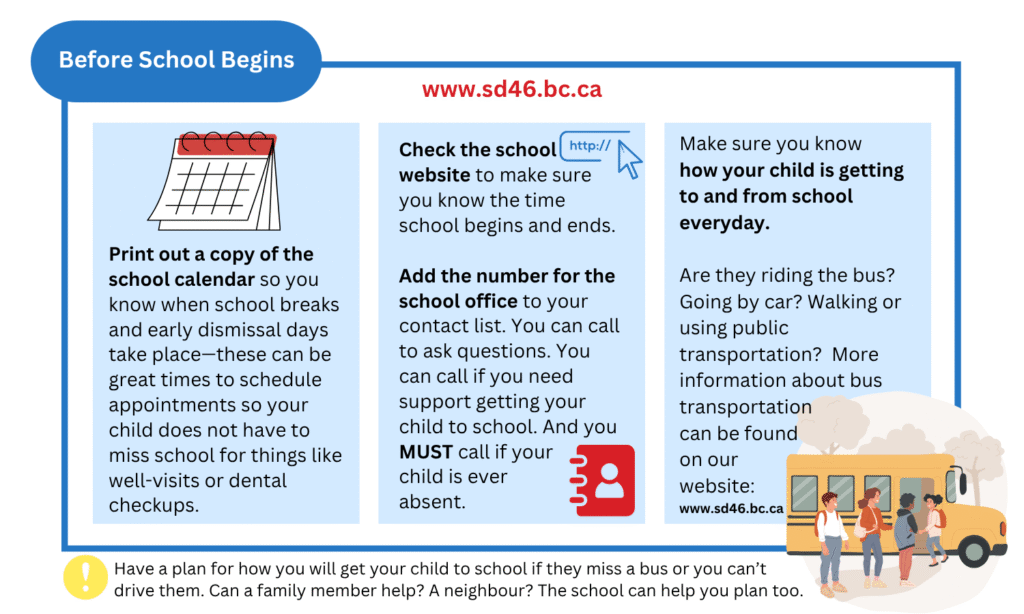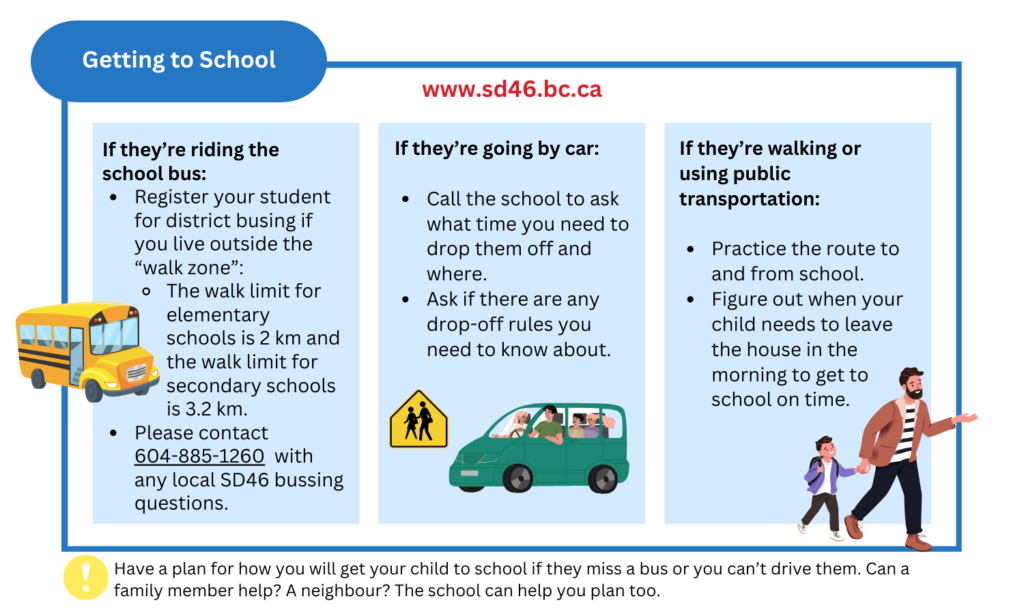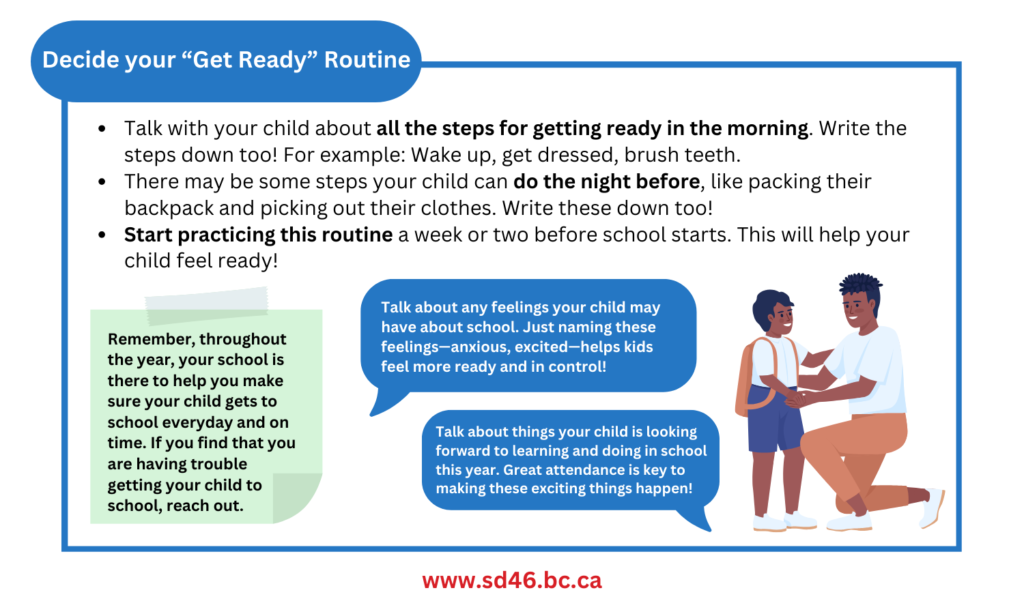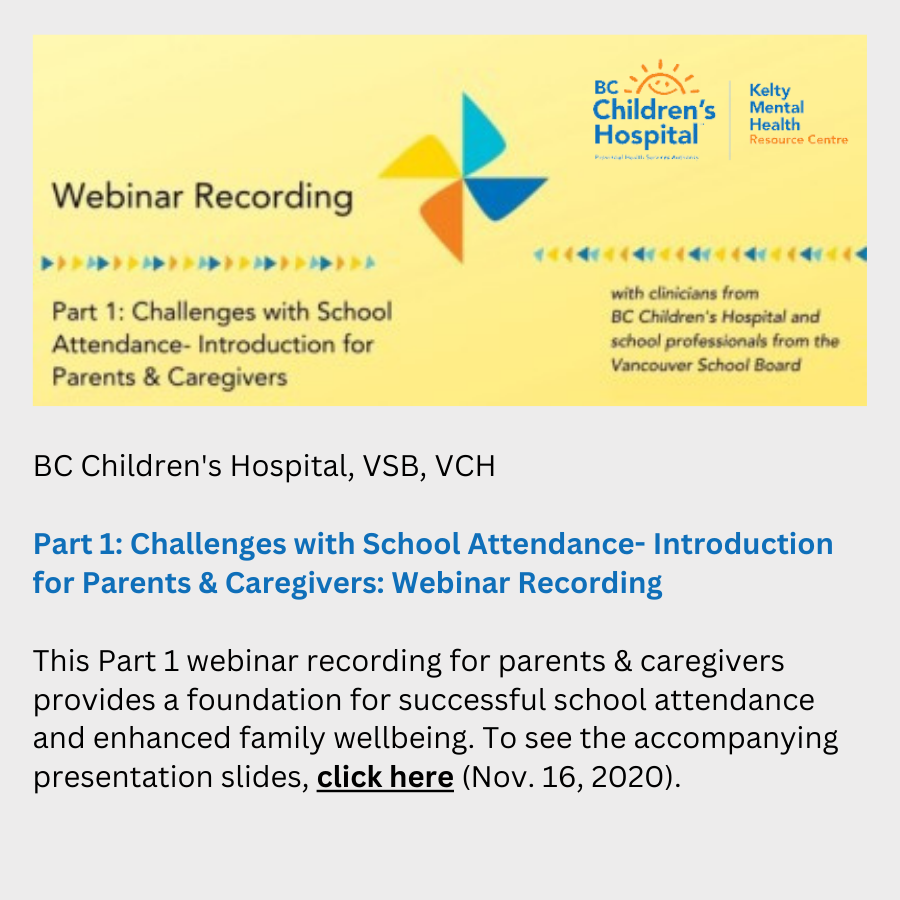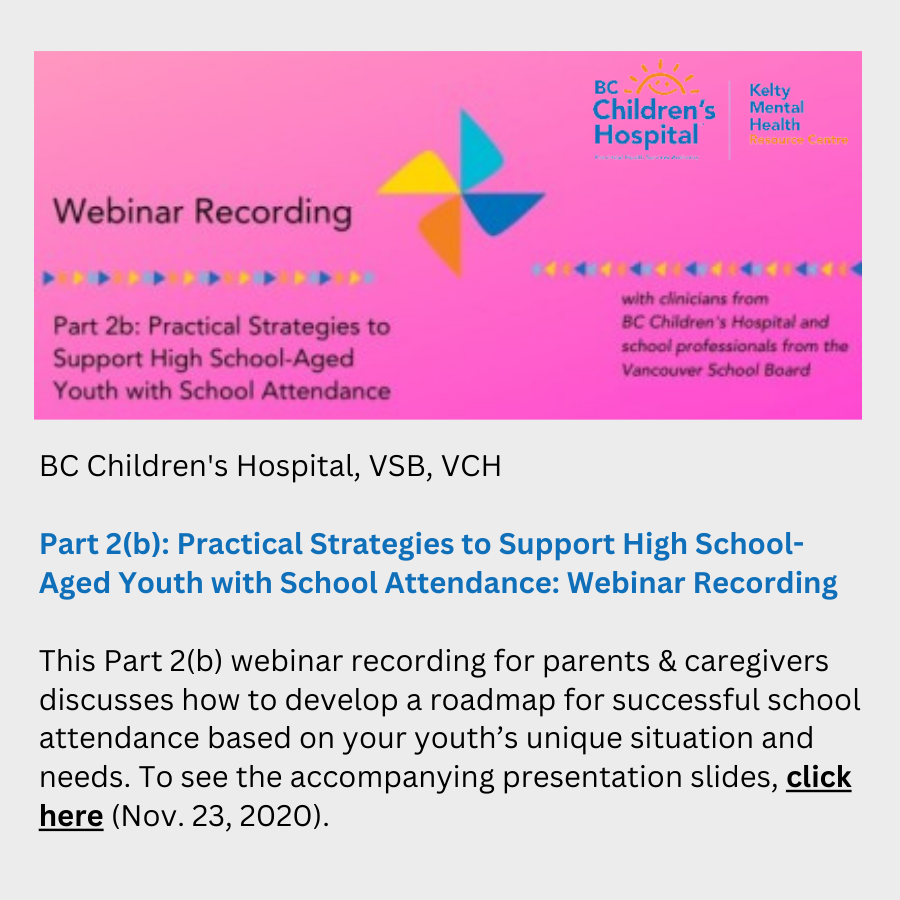
Attendance and Student Well-Being: How Schools and Families Can Work Together
Regular school attendance plays an important role in supporting students’ overall well-being and their sense of connection to the school community. Research indicates that when students are absent from school frequently, they may be more likely to experience challenges such as increased stress, difficulties in feeling connected to their peers and teachers, and, over time, potential struggles both in and beyond the classroom.
Students and families may face a variety of complex circumstances that can contribute to absences, including health and mental wellness concerns, adjusting to changes, and other personal or family needs. It’s important to remember that students are best supported when their schools, families, and communities work together to understand and address these challenges.
Creating a positive and welcoming school environment is key. Some important ways School Teams encourage regular attendance and support student well-being include:
- Building caring, trusting relationships between students and staff
- Fostering a supportive community at school and beyond
- Connecting families with helpful resources during difficult times
- Providing individualized support when students need extra help
Students often describe the process of disengagement as gradual, and some mention that missing classes makes it challenging to keep up. Research indicates that building meaningful connections with school staff significantly enhances students’ overall school experience, leading to improved attendance and greater engagement.
By nurturing positive relationships and implementing proactive, supportive strategies, schools help students feel more engaged and motivated to attend. Some helpful approaches may include:
- Environments where every student feels safe, valued, and supported by school staff
- Recognizing positive attendance and celebrating student efforts
- Offering academic support tailored to students’ unique needs
- Using attendance tracking tools to provide timely and caring check-ins if a student misses school
- Coordinating with agencies and community organizations to offer additional resources for families
If you or your child are experiencing challenges related to school attendance, please remember that support is available. Connect with your child’s school team or explore the resources on this website to learn more about how we can work together to promote your child’s well-being and success.
The Importance of Regular School Attendance
Consistent school attendance is vital for the academic, social, and emotional growth of children and youth. Ensuring students are present supports their overall well-being and sets the foundation for lifelong success.
Here’s why regular attendance matters:
1. Academic Achievement
Students who attend school regularly are more likely to succeed academically. Each day of learning builds on the previous one, and frequent absences can create knowledge gaps, making it difficult for students to grasp new concepts and progress in their studies.
2. Skill Development
Daily participation in classes helps students strengthen essential skills such as reading, writing, and mathematics. These foundational abilities are critical for further education, career readiness, and everyday life.
3. Building Consistency and Routine
A predictable school routine fosters a sense of security and develops habits of discipline, responsibility, and time management. These traits serve students well both inside and outside the classroom.
4. Social Growth and Friendships
School provides a dynamic social environment where children and youth connect with peers, form friendships, and practice valuable interpersonal skills. Being present supports healthy social development and a sense of belonging.
5. Access to Support and Resources
Regular attendance ensures students who may need extra help, academically or otherwise, have timely access to support services and interventions. Early identification and assistance lead to better outcomes for all learners.
6. Engagement and Motivation
Consistent attendance is closely linked to greater engagement in school activities, increasing enthusiasm for learning and helping students get the most from their educational experience.
7. Reducing Risk of School Non-Completion
Chronic absenteeism is a significant predictor of school non-completion. Supporting good attendance from an early age helps keep students on track for graduation and future opportunities.
8. Establishing a Strong Work Ethic
By attending school regularly, students develop a reliable work ethic, an invaluable quality for success in future education and the workplace.
9. Confidence and Self-Esteem
Participating fully in school allows students to develop their core competencies, stay current with lessons and their peers, promoting confidence, positive self-image, and a sense of achievement.
10. Legal Responsibility
According to the BC School Act, children aged 5 to 16 are required to be registered and attend school regularly. This mandate reflects the importance of education for every child’s future.
- Share with your child why regular school attendance matters, and talk together about its benefits.
- Familiarize yourself with who to approach at the school for assistance or support.
- In your family, let your child know that attending school is a valued routine.
- Keep an eye on your child’s health and general wellbeing, and connect with healthcare or school services if extra support might help.
- Encourage healthy habits, such as nutritious meals and a consistent sleep schedule with a regular wake-up time.
- If you notice your child is finding schoolwork challenging, reach out to the school to explore available supports.
- Whenever possible, aim to schedule family vacations during school breaks to help minimize disruptions.
- Trust your instincts, if you notice any changes in your child’s behaviour, consider discussing your observations with school staff to work together on solutions.
School Anxiety & Attendance Challenges for Parents and Caregivers: Webinar Series
Getting to school or managing a whole day at school can be really hard for some children and youth, and it can be challenging for parents and caregivers to know how best to move forward. In this 2-part webinar series, the presenters will talk about anxiety and related challenges that can be a barrier to attending school, as well as practical strategies to help things go more smoothly. These webinars are relevant whether your child is not getting to school at all or sometimes struggling to make it through the whole day. Below, you will find the recordings for all of these webinars, as well as the slides for each presentation. These webinars were held in November 2020.
This webinar series is a collaboration between BC Children’s Hospital, the Vancouver School Board, and Vancouver Coastal Health Child & Youth Mental Health.


